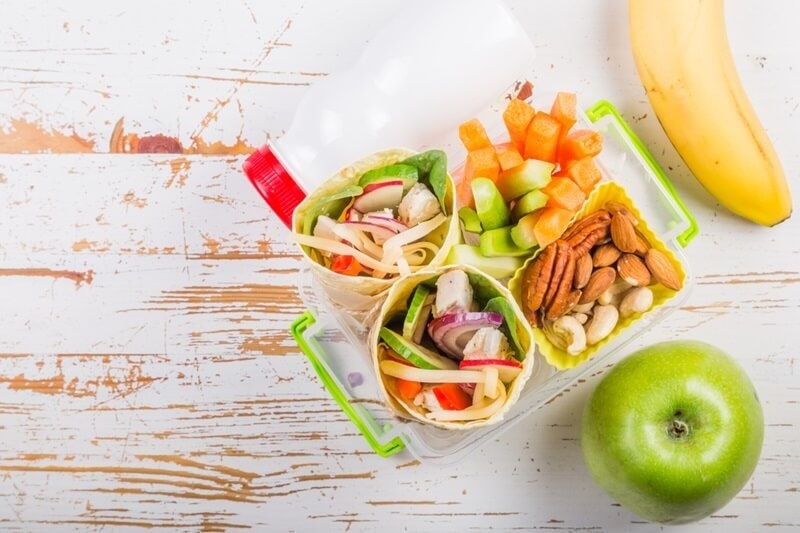
Some of the physical activities are more vital today in the high-velocity world because it is essential to manage our kids to be healthy and strong. As weather patterns change and school schedules start, there is also exposure to new viruses, and children need a good immune system to stand up to the illnesses. Fortunately, food can be one of the most powerful aids in promoting their health. We will discuss the best immune-booster foods that kids can enjoy in the year 2025. Whether it is lunchtime at school or dinnertime at home, the following options will make your child remain energetic, attentive, and strong throughout the year.
In 2025, the nutrition of kids is more clever, less complex, and more about long-term good health. Parents are more conscious of the types of products used in the preparation of meals, and there are rising levels of interest in organic food, rich in nutrients, and dishes that are simple yet preparing them does not take long to prepare. What does a good, immunity-boosting diet consist of in the contemporary world?
Foods that contain a lot of nutrients are foods that are rich in important vitamins and minerals but low in empty sugars and fats that are harmful. These aid in the development of a good immune system, brain development and growth, as well as physical growth.
Although supplements are a way of righting wrongs in the diet, it is best to stick to real food. In the USA, healthy kids' meals are focused on whole foods, fruit, and vegetables, lean sources of protein, and healthy fats, which in turn enhance immunity.

A strong immune system starts with what goes on the plate. These top 20 immune-boosting foods are essential for every child’s daily diet. Including a variety of these foods regularly can help protect your child.
Rich in antioxidants, especially vitamin C and flavonoids, blueberries help fight infections and keep your child’s body strong. Add them to breakfast or smoothies.
Yogurt contains probiotics, which are good bacteria that support gut health. A healthy gut leads to a stronger immune system. Choose plain, low-sugar varieties and add honey or fruit.
Eggs are full of protein and vitamin D. Vitamin D helps regulate immune responses and protects against respiratory infections.
Loaded with beta-carotene, sweet potatoes turn into vitamin A in the body. This vitamin is key to healthy skin and mucous membranes, the first line of defense against germs.
This green veggie is packed with vitamins A, C, and E, which all help the body fight off infections. It’s also rich in antioxidants and iron.
Known as a superfood, broccoli has immune-boosting vitamins like C, A, and E. It’s also high in fiber and is best when lightly steamed.
Almonds are rich in vitamin E, a powerful antioxidant that supports immune function. A small handful as a snack is perfect.
Everyone knows oranges are high in vitamin C, but they also contain potassium and folate—important for immune strength.
Crunchy and sweet, carrots are rich in beta-carotene and vitamin A. They're a great addition to lunch boxes and snacks.
Fatty fish like salmon provide omega-3 fatty acids and vitamin D. These help reduce inflammation and boost white blood cell activity.
Oats are high in fiber and contain beta-glucans, which improve immune response. Serve them warm for breakfast or in homemade granola bars.
Chicken soup isn’t just comfort food—it contains zinc and vitamin B6, both of which support immunity and healing.
These colorful veggies have more vitamin C than oranges. Add red, yellow, or green bell peppers to wraps, pasta, or stir-fry meals.
Garlic has natural antibacterial and antiviral properties. Use it in soups, sauces, or roasted dishes for extra flavor and health.
Kiwis are full of vitamin C, vitamin K, and potassium. This tropical fruit is a delicious, immunity-boosting snack.
Rich in healthy fats and vitamin E, avocados help absorb other nutrients and support skin and cell health.
Pumpkin seeds are packed with zinc and iron, both essential for immune function. They're easy to sprinkle over yogurt or salads.
Apples are a good source of fiber and vitamin C. Their antioxidants help the body fight inflammation and disease.
This yellow spice has strong anti-inflammatory properties. Add a pinch to warm milk (golden milk) or soups for a healthy immune boost.
While not a food, water is essential. Staying hydrated helps flush out toxins and keeps every part of your child’s body working well.
With so many immune-boosting options, building daily meals becomes easier. Here’s how to turn those ingredients into balanced, healthy kids' meals that USA parents love.
Breakfast is key to kickstarting energy and immunity for the day. Combine oats with blueberries and yogurt, or try scrambled eggs with spinach and whole-grain toast.
Create colorful, fun, and nutritious lunches with chicken wraps, carrot sticks, and fruit like oranges or apples. Add pumpkin seeds for a crunchy snack.
Dinner can be delicious and healing. Salmon with sweet potato mash, broccoli, and garlic-seasoned brown rice is both kid-friendly and packed with nutrients.
Snacks don’t have to be sugary. Offer almond butter with apple slices, Greek yogurt with honey and kiwi, or homemade oatmeal cookies with turmeric.
Getting kids to eat immune-boosting foods can be a challenge. But with a little creativity, you can make healthy eating something they enjoy.
Let children help wash fruits, mix smoothie ingredients, or arrange food on plates. Kids are more likely to eat what they help make.
Make a meal around a theme like “superhero dinner” using foods that give them “super strength” like spinach and salmon.
Not all foods support your child’s health. Some lower immune defenses. In 2025, awareness is growing about what not to include in kids’ diets.
High sugar intake can suppress the immune system for hours. Limit soda, candy, and sugary cereals.
Packaged chips, cookies, and frozen meals often contain unhealthy fats and preservatives that may harm gut health.
The immune system is not a system that can be built in a short period, but it begins with the food we eat daily. The immune-boosting foods incorporated into the daily menus help kids avoid becoming weak, disoriented, and prone to falling ill, especially in times of seasonal shifts and during schooltime. Blueberry, broccoli, salmon, seeds, these are the foods that can be your best friends in the parenting process. Couple that with proper sleep, active daily engagement, and adequate amounts of water, and your child will feel the difference in his or her overall health in the next 2025 and beyond.
This content was created by AI